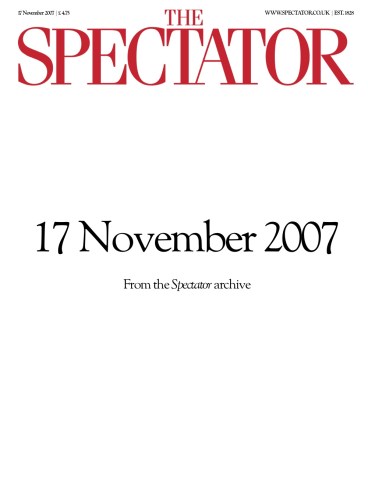Books of the Year | 17 November 2007
Deborah Devonshire The Uncommon Reader by Alan Bennett (Profile Books, £9.99) is small, short, cheap and perfect. It is a gem among the dross, without a wasted word. It conjures a picture so skilfully that whenever I see the Derbyshire County Library van in the village I see Norman and his employer inside discussing their








